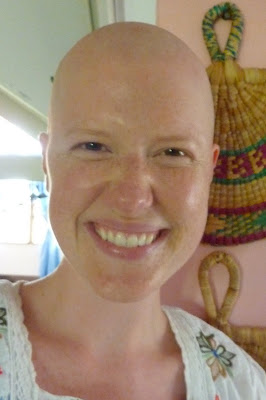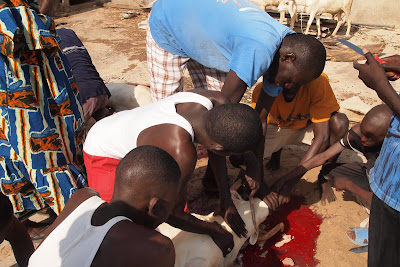In the Garden
One summer, I decided to weed the garden at my dad’s house
because it had gotten so bad that we could no longer see the flowers in the
bed. I think I spent about five hours cleaning it up, and I was very happy with
the results. A couple days later I left on a three-week trip to Lithuania with
a team from my church. When I came back, the weeds had mostly returned, and I
was so discouraged that I never tried gardening again—until this week. I think
it is funny how life changes; how one goes through periods marked by different
sorts of activities and passions. Some phases continue throughout one’s life
and some pass with rapidity. I think that gardening has become indelibly a part
of my cornucopia of interests.
Having never really planted anything in my life, I had very
little knowledge of how to start. Thankfully I observe well and I retain what I
read; so with the few articles I have read about planting and what I have
observed at Beer-Sheba, I commenced my gardening scheme. I thought of my
grandfather Joe when he used to come to my dad’s house when I was little to bag
up the horse manure to spread on his garden. I thought that was the most
disgusting thing one could do—touch horse manure and transport it in a vehicle.
He would bring his old rusty-red vehicle—in which the trunk contained a snake,
so he would tell me every time he came over—and fill it with bags of manure. I
reflected on these moments as I was scooping manure from the pile into my
wheel-barrel and walking it to my garden. Now I understand how good animal
manure is for garden soil and I revel in the application process because I know
I am having direct impact in enriching the soil.
 The idea of the garden is to provide Beer-Sheba with the
majority of the vegetables it consumes on a daily basis. I planted eggplant—both
the normal variety and a small white variety that is very bitter—cabbage,
turnips, tomatoes and carrots; plus I planted strawberries and transplanted red
hibiscus that is used for making a delicious local juice or tea. I learned many
lessons: 1) Hibiscus can be planted directly (I wasted a lot of time
transplanting it because I was unaware. How frustrating!); 2) It is better to
mulch after the planting is done because the mulch will easily mix with the
dirt needed to cover the seeds; 3) When using the hole method (We plant in Zai
holes, which are deep holes that can be easily fertilized and watered when
resources are scarce.) be careful to mark the holes before digging up the weeds
surrounding the holes; and 4) Hoe the soil immediately after watering,
otherwise the soil will harden and water will have been wasted. I prayed that
my garden would grow well; so by God’s grace, we will have a plentiful harvest.
It’s too bad I will not see the result of God’s mysterious handiwork, but it is
nice to know I have made such a positive impact in the landscape and health of
Beer-Sheba. Truly, there is nothing as satisfying as working one’s body to grow
food good for the body—an agreeable and delightful living cycle.
The idea of the garden is to provide Beer-Sheba with the
majority of the vegetables it consumes on a daily basis. I planted eggplant—both
the normal variety and a small white variety that is very bitter—cabbage,
turnips, tomatoes and carrots; plus I planted strawberries and transplanted red
hibiscus that is used for making a delicious local juice or tea. I learned many
lessons: 1) Hibiscus can be planted directly (I wasted a lot of time
transplanting it because I was unaware. How frustrating!); 2) It is better to
mulch after the planting is done because the mulch will easily mix with the
dirt needed to cover the seeds; 3) When using the hole method (We plant in Zai
holes, which are deep holes that can be easily fertilized and watered when
resources are scarce.) be careful to mark the holes before digging up the weeds
surrounding the holes; and 4) Hoe the soil immediately after watering,
otherwise the soil will harden and water will have been wasted. I prayed that
my garden would grow well; so by God’s grace, we will have a plentiful harvest.
It’s too bad I will not see the result of God’s mysterious handiwork, but it is
nice to know I have made such a positive impact in the landscape and health of
Beer-Sheba. Truly, there is nothing as satisfying as working one’s body to grow
food good for the body—an agreeable and delightful living cycle.
Tip #24 for Surviving in Senegal: Do not eat too much smoked
fish. This probably would not be a problem for most people, but one day, I ate
far too much smoked fish and the quantity of salt and strong flavor made me
ill. Too much salt and not enough sugar and potassium leaves a person feeling
quite weak in the heat.







Comments